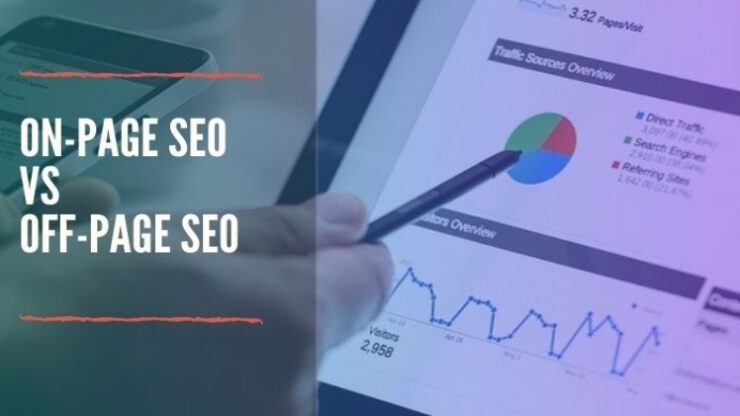SEO or Search Engine Optimization is critical for driving organic traffic to your website. People may want to know about something that your website can provide. However, if your SEO is incorrect, they may not even find you altogether.
SEO can be further divided into On-Page and Off-Page. The job of both on and off-page SEO is to promote your ranking in SERPs (Search Engine Result Pages), although they work differently. The on-page SEO contains various things like Title Tag, Meta Description, etc., whereas off-page SEO consists of off-the-page elements like Domain Authority, Social Share, SEO guest posting service that can generate backlinks, etc.
We shall try to point out the differences in this article.
The difference between On-Page and Off-Page SEO
The on-page SEO factors are those that are contained in your website. You can directly control these and improve your ranking by making changes to these factors. Off-page SEO factors are generally not under your direct control as they happen outside the website. However, you can work towards improving those factors to improve the SEO of your website.
On-Page SEO in a little more detail
On-page SEO focuses on optimizing the website and its individual pages to rank them higher for target keywords. The control of on-page SEO is totally at your disposal. This contains the contents of the pages and their HTML source code. The target is to get these pages to rank highest when the target keywords are searched for. Various factors define how your on-page SEO can be optimized.
- Title Tag is what appears on the search engine page.
- Meta Description describes the content of the website. Search engines get a glimpse of your page from here.
- Headings are self-describing. They are headings in your content. The search engines give these more weightage.
- URL is the link of the page, and this also has vital weightage. Use keywords properly in the URL for better results.
- Content remains a crucial factor as this should be high-quality and must contain a good density of your target keywords.
- Mobile-friendliness is the need of the hour as people access websites from mobile devices a lot more these days.
- There are many other factors as well with reduced weightage.
Now it’s time for Off-Page SEO.
The off-page SEO is not in your total control, and it takes substantial time and effort to build on the factors that affect your off-page SEO. These factors include.
- Backlinks are the links to your website from other websites. High-quality backlinks are needed to improve this factor.
- Social shares need to be more for this factor to improve. If the posts get a better engagement rate, it will further move up your ranking.
- Brand mentions are unlinked mentions of your brand on third-party websites.
- Domain Authority and Page Authority are developed over time based on many other factors. These are vital off-page SEO factors that can improve your page ranking substantially.
Both on-page and off-page SEO optimization are critical to the success of your website and your business. So, you must take the two up separately and work on improving them.




























